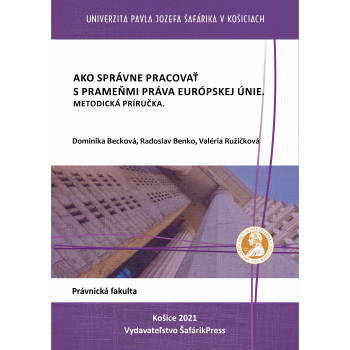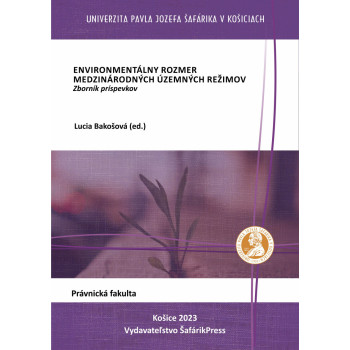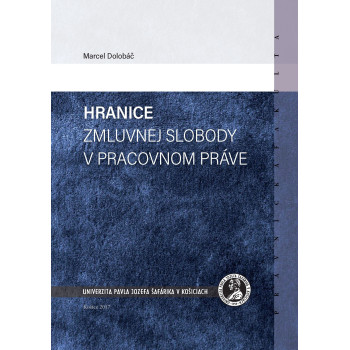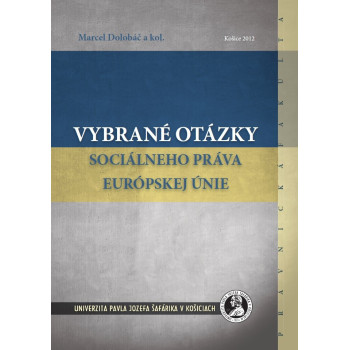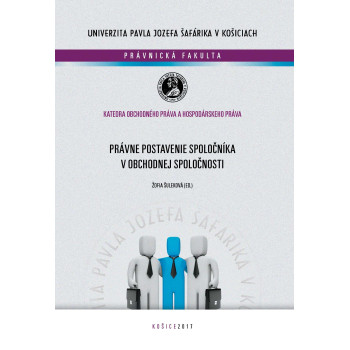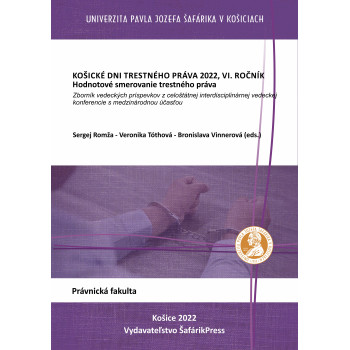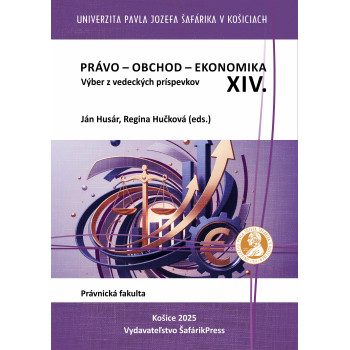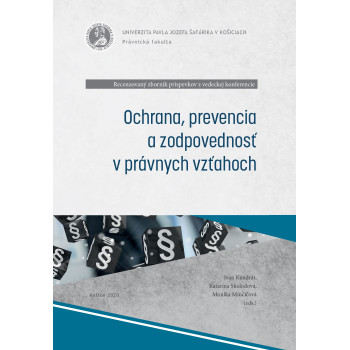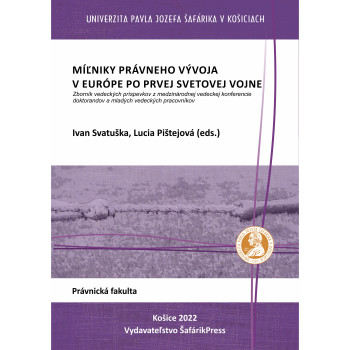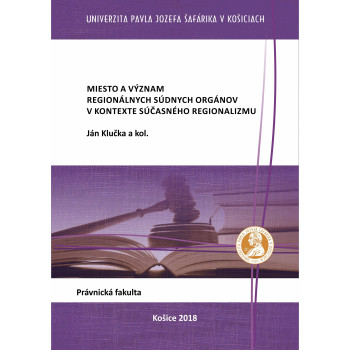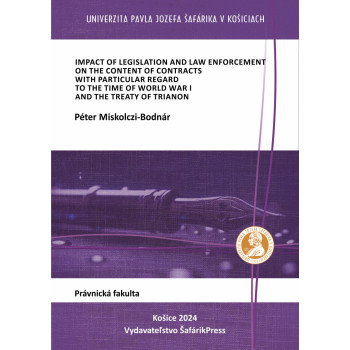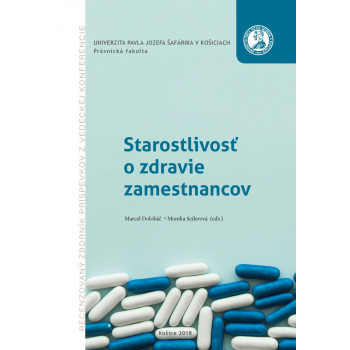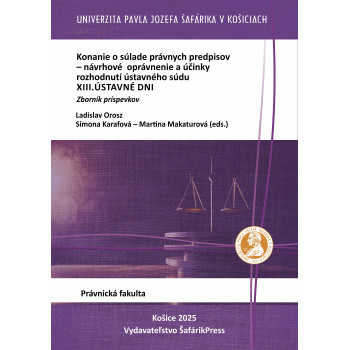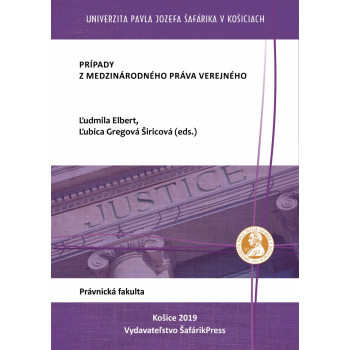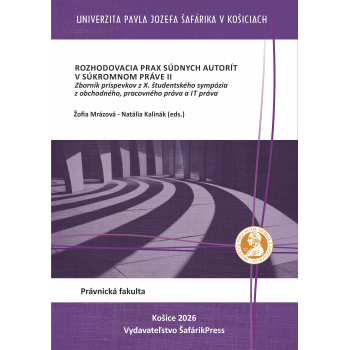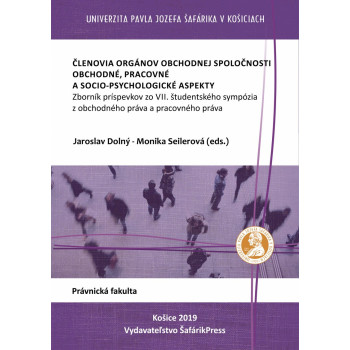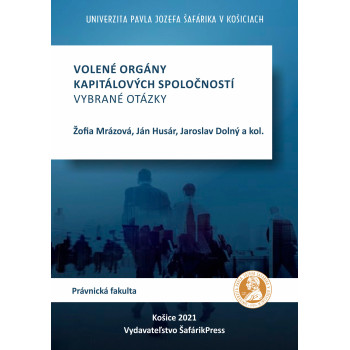E-book
Marcel Dolobáč - Monika Seilerová (eds.)
The Proceedings presents papers from international scientific conference The Employees health care held on 6th and 8th June 2018 in High Tatras and is published as a partial outcome of the implementation of the project APVV-16- 0002 - Mental Health in the Workplace and Employee Health Assessment.
Pri hodnotení informačného veku sa ťažko uhýba streľbe fráz. Moderné technológie, internet, smartfóny, komunikačná technológia, či sociálne siete zmenili rytmus života na nepoznanie a svojim dosahom prekvapili aj samotných tvorcov. Možno takéto strohé hodnotenie znie až priveľmi povedome, snáď ako mnohokrát vyslovená fráza, ale je vskutku pravdivé. Rýchlo, obratom, hneď. ASAP. Heslá dnešnej doby. Pracovný život nevynímajúc. Namiesto uľahčenia práce a možnosti zosúladenia pracovného a rodinného života, čo je stále nenaplneným snom modelu flexikurity, moderné technológie prepletajú voľný čas s tým pracovným a nedokážu ich od seba oddeliť. Zamestnávateľ prostredníctvom emailu kladie požiadavky na neustálu online zapojenosť, z jeho pohľadu odpoveď možno zaberie iba pár minút, ale pripravený máme byť takmer vždy. Výsledkom je nezdravý, nadmerný, ba neustály stres. Stres sa stal takým fenoménom nového pracovného sveta, že mladí uchádzači o prácu sa vzájomne predbiehajú v tom, že práve oni vedia pracovať pod stresom, bez obáv zvládajú stresové situácie, dokonca majú stres radi, vyhľadávajú ho a túžia v stresovom prostredí pracovať. Nuž, nevedia, nezvládajú a netúžia ... ak, iba dočasne.
Nové stresové faktory sú predmetom skúmania nielen prírodných vied, najmä medicíny, ale aj humanitných vedných odborov, vrátane psychológie a práva. Autor tohto predhovoru s potešením konštatuje, že viacerí odborníci z týchto tieto zdanlivo vzdialených odborov sa stretli na spoločnej konferencii pod gesciou grantovej úlohy APVV-16-0002 Duševné zdravie na pracovisku a posudzovanie zdravotnej spôsobilosti zamestnanca a vzájomne si vymieňali poznatky a myšlienky. Vzájomná interdisciplinárna interakcia sa stáva základom pre nové poňatie problematiky a inšpiratívne metódy skúmania.
Zborník predstavuje výsledky prednesov prezentovaných na spoločnej konferencii s názvom Starostlivosť o zdravie zamestnancov, ktorá sa konala v dňoch 6. až 8. júna 2018 v Hornom Smokovci, vo Vysokých Tatrách. Veríme, že jeho obsah zaujme a podnieti i vás, čitateľov.
JUDr. Marcel Dolobáč, PhD.
Download the e-book for free (pdf)
